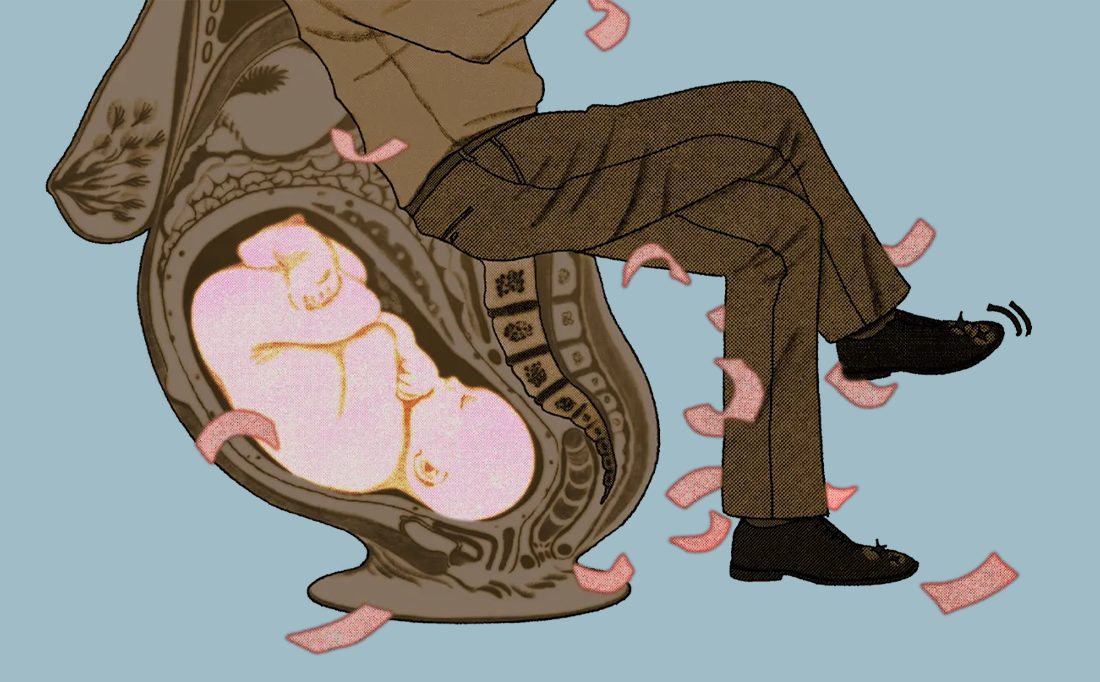The surrogacy industry is booming, projected to grow to $196 billion by 2034 from $21.85 billion in 2024. While some countries legalise and regulate the practice, others ban it, creating legal loopholes that fuel exploitation.
A key hotspot for such activity is the Turkey-Georgia-Northern Cyprus corridor, where differing laws create opportunities for illegal surrogacy networks.
This cross-border investigation reveals that Georgia, where commercial surrogacy is legal, has become a hub for abuse, with allegations of women being trafficked and forced into surrogacy.
Reports indicate that surrogate mothers, including Turkish citizens, are transported across borders under false pretenses. Despite evidence from advocacy groups, Georgian authorities have been slow to act, leading to concerns about corruption or deliberate inaction.
Meanwhile, efforts to ban commercial surrogacy in Georgia have stalled, largely due to economic concerns, as the industry generates millions in health tourism revenue and provides financial lifelines to many women.
Kiralık Rahimler: Türkiye-Gürcistan-Kuzey Kıbrıs Üçgeninde Büyüyen Taşıyıcı Annelik Pazarı
“Küresel taşıyıcı annelik pazarı hızla büyürken ülkeler arasındaki farklı yasal düzenlemeler birçok suistimale yol açıyor. Türkiye – Gürcistan – KKTC hattında etik olmayan uygulamalara ve… pic.twitter.com/CnL4UcdfSk
— P24 (@P24Punto24) February 10, 2025
The freelance journalists show that the uncovering of a surrogacy trafficking network spanning Turkey, Georgia, and Northern Cyprus resulted in no charges. In Turkey, clinics allegedly recruited vulnerable women, including minors, and transported them using forged documents. Despite whistleblower reports, legal loopholes and a lack of evidence allowed the suspects to evade prosecution.
Similar concerns persist in Northern Cyprus, where lax oversight enables illegal surrogacy arrangements. Undercover investigations confirmed that clinics continue to offer surrogacy to foreign women despite legal prohibitions.
Social media platforms in Turkey facilitate an underground surrogacy market, with individuals openly advertising illicit services. Some women offer surrogacy arrangements outside medical settings, raising ethical and medical risks.
International responses remain divided. Some advocate for regulation over prohibition, acknowledging the deep human desire for biological parenthood. Others push for a universal ban, arguing that surrogacy inherently violates women’s and children’s rights.
In response to growing concerns, the EU recently classified exploitative surrogacy as human trafficking, mandating stricter penalties and protections for victims.
The investigation shines a spotlight on women who have been victimised or abused as a result of surrogacy trade, found in archived case files that were not shared with the public. The story includes expert insight and scientific data to support the findings.
The team
Seda Karatabanoğlu graduated with a bachelor’s degree from Istanbul University’s Faculty of Communication in Turkey and a master’s degree in European Studies and International Relations at l’Université Paul-Valéry in France. Her contributions encompassing news coverage and articles pertaining to women’s rights and the media economy have been disseminated across multiple esteemed online platforms, notably including Euronews Turkish and DW Turkish. Now living in France, she continues her work as an independent journalist.
Zeynep Yüncüler is a graduate of Izmir University of Economics, where she studied in the Media and Communication Department. She worked at Milliyet Daily, ‘Artı 1’ TV, BirGün Daily, ‘Artı Tv’ and Punto24, an independent journalism platform in Turkey. She also served as the secretary for the Journalists’ Union of Turkey’s Istanbul branch. She was honored with the best interview award (2016) by the Progressive Journalists’ Association (ÇGD). Currently, she is a freelancer.
